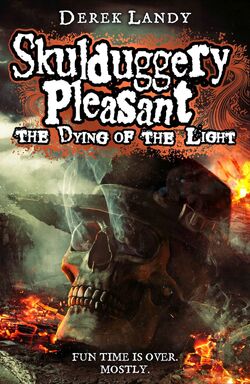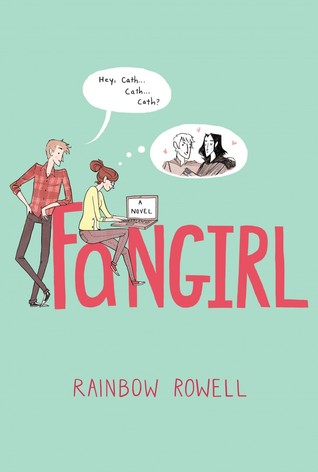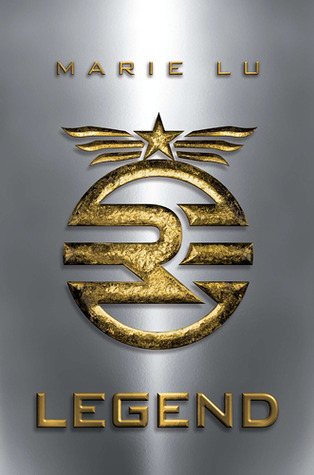Publisher: St. Martin's Press
Pages: 459
Rating: 5 stars (+)
Blurb: Cath
is a Simon Snow fan.
Okay,
the whole world is a Simon Snow fan...
But
for Cath, being a fan is her life—and she’s really good at it.
She and her twin sister, Wren, ensconced themselves in the Simon Snow
series when they were just kids; it’s what got them through their
mother leaving.
Reading.
Rereading. Hanging out in Simon Snow forums, writing Simon Snow fan
fiction, dressing up like the characters for every movie
premiere.
Cath’s
sister has mostly grown away from fandom, but Cath can’t let go.
She doesn’t want to.
Now
that they’re going to college, Wren has told Cath she doesn’t
want to be roommates. Cath is on her own, completely outside of her
comfort zone. She’s got a surly roommate with a charming,
always-around boyfriend, a fiction-writing professor who thinks fan
fiction is the end of the civilized world, a handsome classmate who
only wants to talk about words... And she can’t stop worrying about
her dad, who’s loving and fragile and has never really been
alone.
For
Cath, the question is: Can she do this?
Can
she make it without Wren holding her hand? Is she ready to start
living her own life? Writing her own stories?
And
does she even want to move on if it means leaving Simon Snow behind?
*****
I'm just going to
lead with a quote from the New York Times Journal of Books review,
because it so perfectly encapsulates my feelings about it:
“Fangirl is
a deliciously warm-hearted nerd power ballad destined for greatness”
Can
I just say I love the term “nerd power ballad”? Anyway. Fangirl
is the second book I bought with
the Eason book voucher I got for my birthday (thanks, Cian). I wasn't
sure about it at first because I don't think I've ever read a book
about someone's first year in college before, especially since it's
contemporary. I wouldn't even have considered that YA before now. I'm
glad to say Fangirl changed
my opinion on that.
Whew.
How do I start to describe Fangirl?
I guess I'll start by praising the title: YA books with a catchy
one-word title are all over the place, but too many of them don't
have anything to do with the content. This one is great: one simply
colloquial word in the teenage vernacular that runs on the story's
hook.
I
can express its popularity this way: people in school have read it.
Tons of people in my
school. I mention the title and they say, “Oh, I know that one.
It's really good.” This is often coming from people who generally
don't read. I guess I'm mostly surprised by that because Fangirl
hasn't (yet) become a phenomenon
like Harry Potter or
The Hunger Games –
it's a quieter book, like everyone's secret.
The characterization
was fabulous. I don't think I can adequately express just how
brilliant Levi – my favourite – was, but I'll try. Levi isn't
someone I immediately took a liking to. He spends a lot of the first
part of the book sitting on the landing waiting for Reagan, Cath's
roommate, to let him in, and Cath sees him as almost belonging to
Reagan. Then he steals her protein bars (more on that later) and she
starts talking to him.
Levi is ... unlike
anyone I've ever read about. He's so genuine,
so kind and caring, but not in a pushover Peeta-type way. He's funny
and normal, studying Agriculture. And he has vulnerabilities – like
the fact that he's unable to learn by reading (in direct contrast to
Cath's love for reading and writing), and that Reagan cheated on him.
Have some quotes:
““It's
okay if you're crazy," he said softly.
"You
don't even know-"
"I
don't have to know," he said. "I'm rooting for you.”
“What's
the plan?" she asked.
He
grinned. "My plan is to do things that make you want to hang out
with me again tomorrow. What's your plan?"
"I'm
going to try not to make an ass of myself."
He
grinned. "So we're all set.”
“You
give away nice like it doesn't cost you anything.” (Cath
to Levi – he's certainly not the moody type. Honestly, Levi is just
the most comforting person character ever. I want him in my life.)
I
loved her Dad as well, who's portrayed as a brilliant creative (who's
not a writer or
artist, surprisingly, but rather an advertising person of some sort –
words fail me), but so very absentminded. It's a wonder he's managed
to mind the twins on his own all these years, and he and Cath have a
very close relationship. He's a very endearing character, and I
admire Rowell for making the father involved in a YA story.
Cath's
chosen fandom is Simon Snow,
the wildly popular series about a boy who goes to wizarding school.
It's an obvious rip-off of Harry Potter, and I think that's an
interesting effect – Rowell is using the exact hype and Pottermania
(oh god, did I just say that?) there was all over the world. It
settles Cath into the real world and lets us identify with her a bit.
Not
a whole lot, though, which is where I have to talk about something
that disconcerted me. Cath seems entirely unhealthy. We already know
she's painfully shy, but when she goes to college she stays in her
room all the time on the internet, terrified of her roommate. She
hides boxes upon boxes of protein bars under her bed so that she
doesn't have to eat in front of people in the food hall. She turns
down invitations to every social event. And unless I missed
something, it's doesn't say that she suffers from something like
anxiety, and the only mention of attending a therapist is from ten
years before, after her mom left. So that was worrying. You couldn't
chalk her obsession down to fangirling alone. I'm a fangirl (look at
this blog), and while I'm not a particularly intense one, I don't
think anyone is as extreme as she is without underlying issues. She
contemplates dropping out of college and failing a big assignment
just so she can finish her fanfiction. (Finishing her fanfiction is
framed as a big coming-of-age moment).
One
of the parts that got me really emotional about Fangirl is
the description of what it feels like to have a parent leave.
Obviously it's different for everyone, and there are varying degrees
of, well, badness – but as the story arc tilts towards Cath's
mother who left when she was in third grade, on the day of 9/11, we
feel her pain and her resentment incredibly strongly. Rainbow Rowell
has an amazing ability for tugging on readers' heartstrings without
ever descending into melodrama.
This
part is about Cath and her twin sister Wren:
“They were a
package deal, period. Since always.
They'd even gone
to therapy together after their mom left. Which seemed weird, now
that Cath thought about it. Especially considering how differently
they'd reacted – Wren acting out, Cath acting in. (Violently,
desperately in. Journey to the
Centre of the Earth in.)
Their third-grade
teacher - they were always in the same class, all through elementary
school – thought they must be upset about the terrorists . . . .
[...]
Her mom left for
good a week later, hugging both of the girls on the front porch,
kissing their cheeks again and again, and promising that she'd see
them both soon, that she just needed some time to feel better, to
remember who she really was. Which didn't make any sense to Cath and
Wren. You're our mom.
Cath couldn't
remember everything that happened next.
She remembered
crying a lot at school. Hiding with Wren in the bathroom during
recess. Holding hands on the bus. Wren scratching a boy who said they
were gay in the eye.
Wren didn't cry.
She stole things and hid them under her pillow. When their dad
changed their sheets for the first time – not until after
Valentine's Day – he found Simon Snow pencils and Lip Smackers and
a Britney Spears CD.”
Terribly
long quote, I know, but it was so hard to choose. The writing here is
just so emotive. And the matter-of-fact tone makes it worse.
Once
I got into Fangirl I read it everywhere, even under the desk
in school. It was so engrossing, and I felt so emotionally attached
to – well, not specifically the characters, more the relationships
between them – that I couldn't let it go. I sat in bed one night
reading the last two hundred or so pages while listening to music,
and for some reason I kept laughing and crying out loud. It could
have been just me, but that book – to use fan language (fanguage?
And come on, don't I use it already?) really really really gave me
feels.
And now I'm dying to read Eleanor & Park.



















